You won't believe which 'bad' things are actually GOOD for your health!
One minute chocolate and wine are bad for us, the next we're told it helps us stay healthy! But what's the truth?
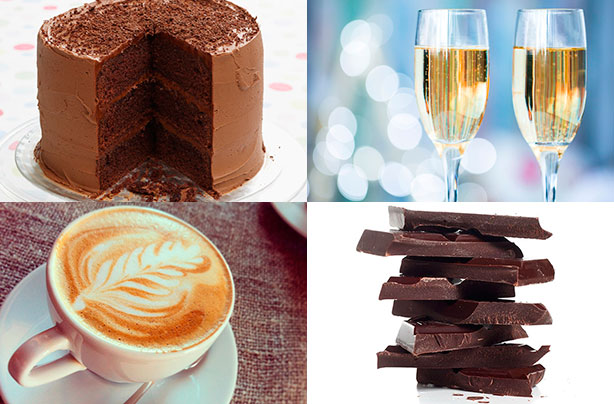
Ever since we were little and trying to get our mitts on the biscuit tin, hounding our parents for sweets on a shopping trip, or begging for ice cream after every meal, we've known there are certain foods that should only be deemed 'treats' as they're just not good for us.
Our parents had it right, there certainly are foods that have little to no health benefits whatsoever (so back away slowly from that greasy fry up!), but what if we told you that some of the foods and drinks we've been programmed to avoid at all costs, aren't actually that bad for us after all? For instance, some full fat foods are healthy, and cake for breakfast isn't always a bad idea...
Some research suggests that this little list of our favourite forbidden foods actually have loads of health benefits, and we couldn't be happier about it!
Coffee
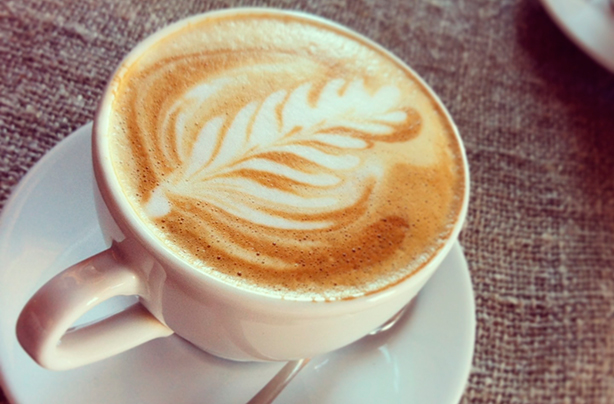
It seems there's a news story about coffee every week! But how many cups can you really drink and is de-caffeinated coffee better for you?
Pros
There have been lots of studies on coffee and many experts now agree that one or two cups of coffee a day can be good for you. Hurrah!
According to new research from the World Health Organisation (WHO) there's evidence that drinking coffee regularly may prevent certain types of cancer, such as womb and liver cancer.
In fact, experts are said to have found an 'inverse relationship' between coffee consumption and those types of cancer. It's expected that the WHO will today announce it's going back on its previous conclusion that coffee could cause bladder cancer, after previously stating it 'possibly caused cancer'.
GoodtoKnow Newsletter
Parenting advice, hot topics, best buys and family finance tips delivered straight to your inbox.
According to other research, unless you have heart problems or high blood pressure then up to three small cups of coffee a day could reduce liver disease by 40%
Drinking coffee may also reduce the risk of Alzheimer's by as much as 60%
Did you know that coffee contains more antioxidants than bananas or beans?
A cup of coffee before or after a workout can help burn fat.
If you don't want the effects of coffee but still want the taste then you can have as many cups of decaffeinated coffee as you want.
Cons
If you have high cholesterol, high blood pressure or are pregnant then regular coffee should be avoided, speak to your GP about whether you can drink decaffeinated instead.
More than three cups of coffee a day can raise your blood pressure and lead to heart palpitations.
If you're concerned about the whiteness of your teeth then cut down on the coffee as it's one of the worst offenders for staining your pearly whites!
Caffeine is a stimulant to the heart and nervous system so if you're feeling nervous, jittery, stressed or you have a nervous system disorder stay away from coffee and speak to your GP.
If you're feeling tired coffee can help you perk up, however, it's not a good idea to rely on it - the only way to feel awake, alert and healthy is with a good night's sleep, plenty of water and a healthy diet.
Although decaffeinated coffee doesn't have any coffee in it, it does have more cholesterol in it so if you're trying to cut down on your fat intake and you have high cholesterol then you shouldn't have too much decaff coffee.
Coffee is something that people can be intolerant of - you might find you get flushed cheeks, red, dry skin and watery eyes - try eliminating all caffeinated drinks, such as cola, tea and coffee to see if this makes a difference.
How much can I have?
1 or 2 regular cups of coffee a day is fine for most people
Wine
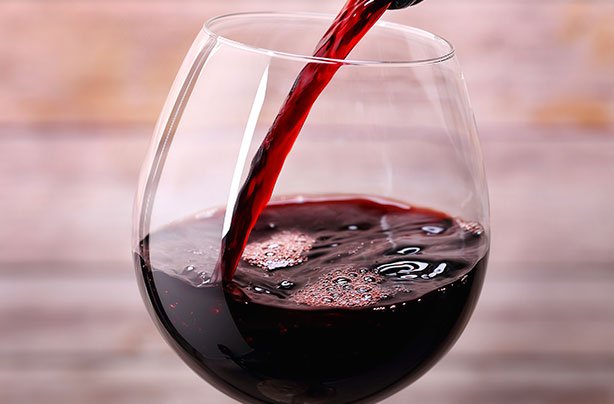
Not all booze is created equal! We at GoodtoKnow are pretty happy at the news that red wine is good for you - we've been saying that for years! But how much is too much?
Pros
A recent study from Harvard University has shown that drinking a glass or two of wine before bed can reduce your changes of being obese by a staggering 70%! This is because wine contains an ingredient called resveratrol, which stops the fat cells in your body accumulating 'bad' fat. Previous work at Denmark University reinforced this, showing that wine drinkers were more likely to savour their food and therefore eat less, so it seems that your favourite tipple really could help to keep you trim.
Not only that, but red wine in particular is packed with more flavanoids than most fresh fruit and vegetables. Flavanoids are types of antioxidants that are found in red coloured fresh foods such as tomatoes and red peppers but the highest levels are found in red grapes - which is why red wine is good for you. These flavanoids are great for skin health too and can contribute to keeping your skin looking young.
Red wine can help reduce the level of cholesterol in the blood and increase levels of good cholesterol, and drinking a glass of red wine regularly can also help prevent blood clotting.
There is also some evidence that red wine might inhibit the growth of some cancerous tumors.
New research suggests that the antioxidants found in red wine could assist with the formation of nerve cells, which may be helpful in treating Alzheimer's and Parkinson's disease.
However, not all red wine is the same. The best wines to drink are Cabernet Sauvignon, followed closely by Petit Syrah and Pinot Noir. Other types of wine don't have as many beneficial antioxidants.
Drinking a little bit of alcohol can actually reduce your risk of a stroke. According to a study of over 20,000 people, those who drank 'moderate' amounts of alcohol were more than 40% less likely to have a stroke then those who didn't drink at all! However, this was only true for non smokers.
Cons
The bottom line is that red wine contains alcohol and despite all the pros of drinking red wine, alcohol is still a toxin and too much leads to many fatal diseases such as cirrhosis of the liver, heart disease and gout.
Unfortunately, if you are sensitive to alcohol or don't like the taste of dry red wine, red grape juice or non-alcoholic red wine doesn't have the same positive affect on lowering cholesterol but it does contain similar antioxidants, so you will get some health benefits.
The health benefits of red wine are only limited to one glass, the moment you have two you wipe out all the good work it does and you increase the chances of a fatty liver, high blood pressure and heart disease.
If you have any kind of health problem you must speak to your GP first to check that it's ok for you to drink alcohol.
How much can I have?
One glass of dry, red wine every night but if you have more than one glass a day and it could have more negative effects than positive.
Chocolate cake
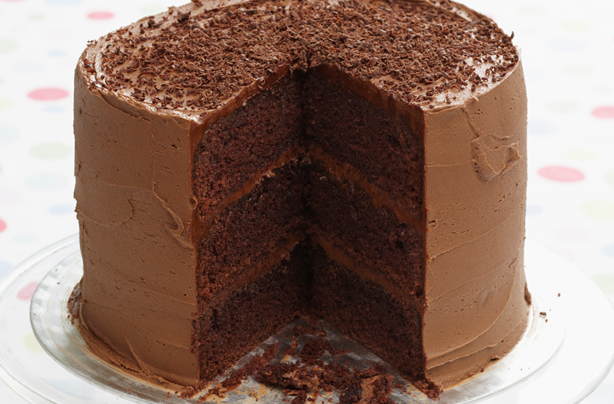
This is not a drill, we repeat, this is not a drill. According to research, if we tuck into dessert along with our morning breakfast, we could actually burn pounds!
Because the body's metabolism is most active in the mornings, this makes it the best time to tuck into sweet treats as we still have the rest of the day to burn off the calories, according to a study from Tel Aviv University.
They split 193 clinically obese adults into two groups, who consumed either a low-carb diet that included a 300-calorie breakfast or a balanced 600-calorie breakfast that included a chocolate cake dessert.
Halfway through the 32-week study, both groups had lost an average of 33lbs per person. But in the second half of the study the low-carb group regained an average of 22lbs per person - while those tucking into desserts lost another 15lbs each!
Pros
The research found that those who had missed their sugar hit in the morning found their cravings for sugars and carbohydrates were more intense, and eventually caused them to cheat on their diet
Cons
The research claims that it only proves a diet must be realistic to be adopted as part of a healthy lifestyle. If you completely restrict yourself from certain things you're more likely to cave and give in later in the day, when the body isn't able to deal with the sugar as easily. Basically, this isn't an excuse to scoff cake all day!
How much can I have?
We're still not convinced eating chocolate cake for breakkie is the way to lose weight, but making sure your breakfast is the largest meal of the day and well-balanced has been proven to beenfit anyone trying to lose weight or live a healthy lifestyle
Actually, all chocolate!
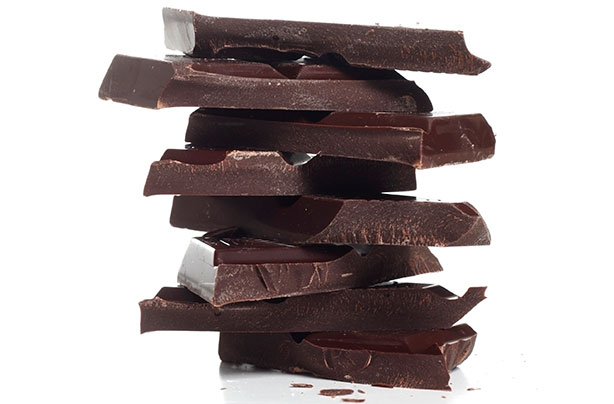
In France they eat loads of chocolate, drink wine and smoke yet they still stay slim and healthy - could there be a health miracle in chocolate?
Pros
New research says eating half a bar of chocolate can lower blood pressure and reduce your chance of a heart attack or stroke!
Scientists recently found that dark chocolate contains catechins, which are chemical compounds that might be able to protect against heart disease and cancer.
Dark chocolate also contains antioxidants that can help protect against the signs of ageing.
Cons
Milk and white chocolate don't count because they contain high amounts of fat and sugar.
Even the dark stuff contains sugar and fat and should only be eaten in moderation, such as one or two squares a day.
Some chocolate manufacturers make dark chocolate but they take the good stuff out so you need to look for chocolate that has a high percentage of cocoa, e.g. 70 - 90%
How much can I have?
Enjoy between 1 and 3 squares a day
Champagne
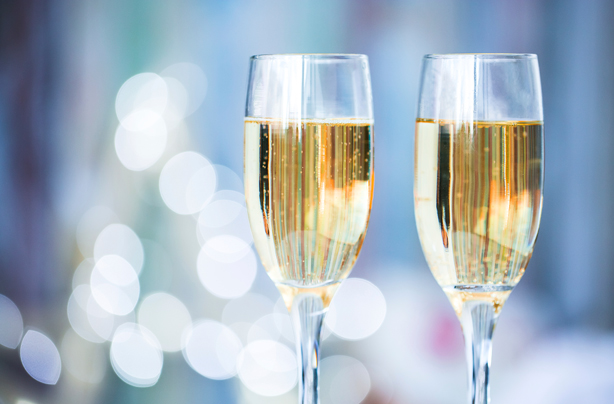
Hurrah! Scientists have found that Champagne has the same health benefits as red wine and that although they haven't tested cheaper alternatives such as Prosecco and cava, they have no reason to believe why they wouldn't perform in exactly the same way.
Pros
Champagne has been found to have similar health benefits to red wine, meaning that it contains antioxidants that reduce the effects of cell-damaging free radicals in the body.
These antioxidants help to lower blood pressure so they reduce the risk of heart problems and strokes.
The antioxidants, or polyphenols, also help to ease circulatory problems.
Bubbly also can help to protect drinkers from brain injuries that occur during strokes, such as Alzheimer's and Parkinson's diseases.
Cons
The bottom line is that Champagne contains alcohol and despite all the pros of drinking Champagne, alcohol is still a toxin and too much leads to many fatal diseases such as cirrhosis of the liver, heart disease and gout.
The polyphenols that help to widen blood vessels are also found in tea, olive oil, onions, leeks, broccoli and blueberries - so this may be a healthier way to get these important antioxidants into your body.
The health benefits can only be reaped if you drink in moderation, excessive drinking will far outweigh any good that the sparkling bubbly will do.
How much can I have?
The scientists reckon that a couple of glasses a day can help to reduce the risk of heart problems and strokes.
Chewing gum
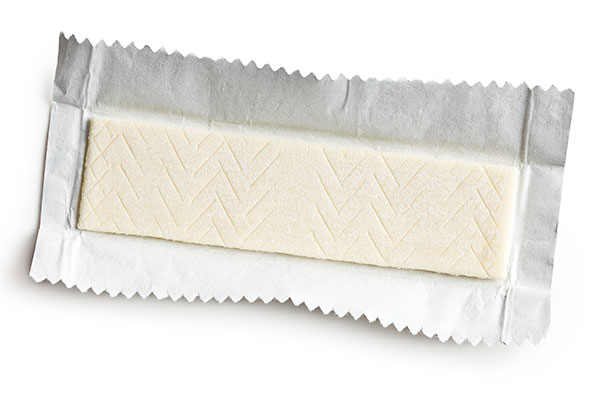
How many times were you told not to chew gum at school because if you swallow it it'll stay in your stomach forever? That can't be true - can it?
Pros
Chewing gum after a meal can help your digestive system process food more effectively.
New research shows that chewing gum helps you concentrate - so maybe it's ok to chew gum in class?
The idea that gum can make your teeth whiter isn't a myth. Chewing gum creates more saliva in your mouth, which helps to keep teeth clean and produce an acid that eats up the bacteria that feeds on plaque.
You may also find that chewing sugar-free gum can help with weight loss as it discourages cravings
Cons
Swallowing chewing gum is not very good for you but your stomach acid is so strong that it will dissolve it, you might get a tummy ache though.
The varieties that aren't sugar-free contain a lot of sugar and are bad for your teeth, and too much sugar can lead to weight gain.
It's messy and bad for the environment because it doesn't biodegrade, plus it costs around £150m per year to clean it off the streets in the UK.
Chewing gum could result in jaw strain in some people.
If you suffer from IBS or bloating, any kind of gum is not recommended because it can increase your symptoms.
How much can I have?
We say, chomp away on the sugar-free stuff whenever you want but avoid the pink gooey gum with sugar.
Beer
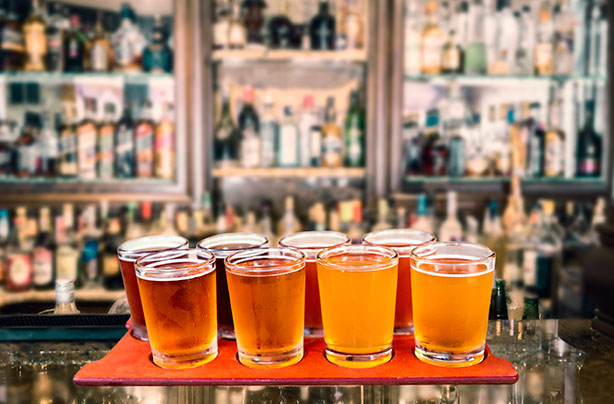
A recent report published by The Beer Academy found that beer is one of the healthiest alcoholic drinks available...
Pros
Beer contains antioxidants which help reduce the effects of free radicals in the body.
These antioxidants also help to lower blood pressure so they reduce the risk of heart problems and strokes.
Beer also contains minerals like silicon whcih may help reduce your risk of osteoporosis.
Beer contains vitamins including B, B2 and B6 and minerals like calcium and potassium.
Beer is fat free!
Cons
Beer contains alcohol, which should always be consumed in moderation. Abusing alcohol can bring on fatal diseases like cirrhosis of the liver, heart disease and gout.
Although fat-free, beer still contains calories, so drinking lots of it could cause you to put on weight.
How much can I have?
Women are recommended to drink no more than 14 units of alcohol a week and it's 21 for men. Find out how many units in your favourite alcoholic drinks. Go back to start for more bad things that are good for you (including wine, chocolate and coffee).
Trusted, informative, and empathetic – GoodToKnow is the ultimate online destination for parents. At GoodtoKnow, our mission is 'simple': we're trying to make sense of parenthood. On the site, you'll find everything you need for a happy, healthy family life. Our huge archive of content includes more than 18,000 articles and 1,500 how-to videos. These include expert-backed advice features on parenting, dealing with relationship changes after having a baby, self-care for mums and managing your family finances. We also feature tried-and-tested product reviews and buying recommendations for every stage of family life - from prams and Moses baskets to birthday gifts and top toys.